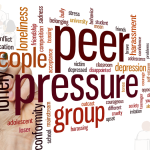Guilt is a powerful emotion. When we experience it, we often feel compelled to make amends with whomever we may have offended, especially if they mean a lot to us or we have an emotional connection. Unfortunately, some people use this emotional connection as a weapon, which is to get others to do things in their favour. This behaviour is guilt-tripping.
Table of Contents
What are Guilt Trips and Why Do People Indulge?
Guilt tripping is a form of emotional manipulation where the manipulator exploits emotional connections to impose expectations and responsibilities. Let’s explore the psychology and motives behind this emotional tactic.
-
Avoid communication
Rather than engaging in open communication, some people often choose guilt trips to express their concerns or address perceived offences indirectly. This behaviour can manifest both unconsciously and consciously.
People who avoid confrontation and lack an understanding of healthy communication are particularly prone to guilt-tripping. Instead of initiating one-on-one conversations, they rely on non-verbal cues and various indirect methods, perpetuating a cycle of miscommunication and emotional manipulation.
-
Make people do things
People who indulge use it to persuade others to fulfill their requests or desires. For instance, siblings or romantic partners might recall past favours or offences to gain a favour in return. These reminders often centre around emphasising the value of past favours or the weight of the offence just to manipulate you to do something.
-
Avoid taking responsibilities
It is a frequent refuge for individuals unwilling to take responsibility for their actions. Instead of acknowledging their mistakes, they shift the blame by evoking a sense of guilt in others. This manipulative tactic involves highlighting past wrongs, subtly making themselves the victim, and deflecting accountability for their missteps.
-
Get sympathy
Guilt trips often unfold as a plea for sympathy from the victim. The guilt-tripper manipulates the situation to make their pain or predicament appear heightened, seeking empathy and understanding. In some instances, the victims may not even be aware of the hurt caused.
This emotional manipulation involves blaming the other party for their perceived lack of awareness or attention. Picture a scenario where a friend, engrossed in her phone, unintentionally becomes the culprit for another friend’s missteps, creating a narrative of neglect and soliciting sympathy.
Real also: 8 devastating signs of a toxic relationship
How to Identify Guilt Trips
Recognizing it can be tricky, but understanding the signs is key to navigating these emotional manipulations.
- Blaming you for their mistakes: They shift the blame for their mistakes onto others, asserting that someone else’s error is the cause of their missteps and deflecting responsibility.
- Reminding you of their favours towards you: They repeatedly bring up the favours towards you, subtly pressuring you to fulfill their requests. This emotional manipulation seeks to establish a sense of indebtedness for past acts of kindness. Genuine relationships are not transactional.
- Disapproving with body language & expressions: They employ subtle cues, expressions, and different body language, making you question if you’ve offended them. The lack of clear communication intensifies this emotional burden.
- Reminding you of past mistakes: They bring back past mistakes or offenses not for resolution but to justify something bad they’ve done or ask for sympathy. It’s a subtle manipulation, burdening you with a sense of guilt, yet the root issue remains unaddressed. It’s also emotional evasion, where the focus shifts from resolving the current issue to making you feel accountable for past missteps.
- Always feeling guilty around them without offending them: It’s worth noting when a persistent sense of guilt shells you in their presence, especially accompanied by noticeable changes in their attitude. While it may not always be a deliberate guilt trip, it’s a cue for a meaningful conversation. Engaging in dialogue allows for a deeper understanding, unveiling the underlying emotions and concerns that might affect your relationship’s dynamics.
Read also: Signs of emotional immaturity
How to Avoid and Manage Guilt Trips in Your Relationship
To break free from the unhealthy cycle, here are effective strategies and ways to steer clear of emotional manipulation.
-
Acknowledge them
Upon recognizing guilt trips, extend acknowledgment, with the belief that people often engage in this behaviour without conscious awareness of their actions or the underlying emotional issues. Acknowledgment allows them to feel seen and heard, fostering a space for healthy communication.
Instead of responding with the same negative energy, approach the situation with empathy and understanding. Encourage a conversation to get to the root of the issue to promote healthier interactions and resolve conflicts effectively.
-
Communicate your feelings
Once you’ve acknowledged it, start a heartfelt conversation about your feelings and the impact of their communication style on the relationship. Guide them towards expressing themselves more constructively, emphasising how it can strengthen the bond between you. Share your perspective on how their actions affect both of you and hinder effective communication.
Do you find this useful? Check out our recent videos discussing lifestyle and relationship among Nigerian youth.
-
Set boundaries
In situations where your feelings are not understood, setting clear boundaries can be protective. This doesn’t necessarily mean severing ties but rather creating a space that allows you to safeguard your emotional well-being. Healthy relationships thrive on mutual respect, understanding, and open communication, so assessing the need for boundaries is crucial in fostering a more positive and supportive connection.
-
Call it out
Addressing the signs directly when you identify them is a proactive step in preventing their effect on you and your relationship. Explain why the behaviour seems off to you and emphasise the importance of maintaining a healthier communication dynamic. It’s crucial to approach this conversation with empathy and avoid being confrontational, which can inadvertently escalate the situation.
-
Get help
If you are ever caught in the web of guilt trips, don’t hesitate to lean on the support of your loved ones or seek guidance from a mental health professional. Their understanding and expertise can help you navigate the path forward, equipping you with the necessary tools to enhance your mental well-being. Remember, reaching out is not a sign of weakness but a courageous stride toward reclaiming your emotional strength.
Conclusion
In the complexity of human relationships, recognizing and navigating the undertones of guilt trips is an essential skill for maintaining emotional well-being. By understanding the motivations behind this emotional manipulation, we break free from it and foster healthier connections. Acknowledging its presence with empathy, engaging in open communication, setting boundaries when necessary, and courageously calling out the behavior contribute to a more authentic and fulfilling relational experience. Remember, seeking support from loved ones or professionals is a sign of strength, a testament to our commitment to reclaiming inner peace.
Something you’d like to share with a diverse group of people? Let us know your thoughts in the comment section, or even better, join our Whatsapp community and start a conversation.
Edited by Halimat Chisom.
About Author
- Oyinade Afe is a versatile writer, designer, and filmmaker with a passion for telling stories. With more than 3 years of experience in content writing, she excels in crafting compelling narratives, visually stunning designs, and producing engaging films. Oyinade is dedicated to authenticity, creativity, and inspiring others through her work.
Latest entries
 LifestyleFebruary 7, 2024When to Consult a Financial Advisor to Manage Your Earnings
LifestyleFebruary 7, 2024When to Consult a Financial Advisor to Manage Your Earnings Business InsightsJanuary 8, 2024How to Conduct a User Interview for a Product: From Preparation to Execution
Business InsightsJanuary 8, 2024How to Conduct a User Interview for a Product: From Preparation to Execution
 LifestyleDecember 1, 2023Peer pressure Among Nigerian Youth: The Good and Bad
LifestyleDecember 1, 2023Peer pressure Among Nigerian Youth: The Good and Bad

